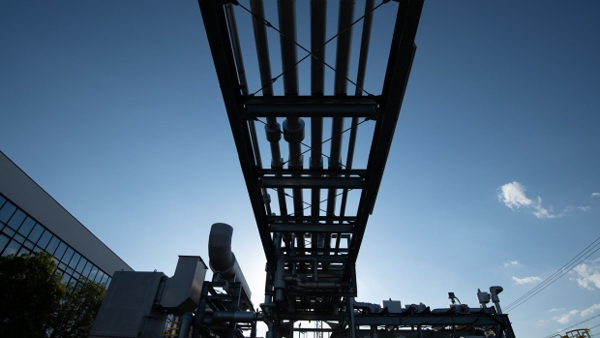
Ania Nussbaum, Alonso Soto and Petra Sorge, Bloomberg News
PARIS/MADRID/BERLIN
EnergiesNet.com 02 15 2023
A spat over defining “green hydrogen” may jeopardize a flagship project to pump hydrogen from Barcelona to Marseille and then onto Berlin via pipeline.
After a recent victory in Brussels for renewable hydrogen made in countries with a low-carbon energy mix, France will keep pushing for nuclear energy to be considered a clean source of hydrogen in ongoing negotiations about the European Union’s green targets, according to officials at the French energy transition ministry.
Failure to take into account nuclear in hydrogen targets for transport and industry would jeopardize the financial viability of infrastructure such as the BarMar pipeline, also known as H2Med, they added — even though the hydrogen channel project was touted during high-level visits in recent weeks.
Nuclear Power Wins Carve-Out Under EU’s Green Hydrogen Rules (1)
The veiled threat highlights how politically sensitive defending nuclear energy is for France. Spokespeople for the governments in Madrid and Berlin have said they would oppose mentioning low-carbon hydrogen — which includes nuclear-produced hydrogen — as part of EU renewable energy goals.
Germany, where opposition to nuclear power is historically high, has lobbied hard for an exclusion of this energy source from the hydrogen definition. The country will phase out its last three nuclear power plants by mid-April.
The EU is currently discussing a directive known as RED3 that would set up targets for using hydrogen in the industry and transport sectors. Negotiations are expected to be completed by the end of March, according to the French energy transition ministry.
Monday’s decision to grant a first carve out for nuclear hydrogen “is an acknowledgment of the decarbonization efforts made by France,” French Energy Transition Minister Agnes Pannier-Runacher said in a statement. “We must now apply this logic to our renewable hydrogen objectives in the RED3 directive. This is a hard point for France and its partners and we are not there yet.”
France typically gets most of its electricity from nuclear reactors. It wants to be able to use atomic energy in future to produce low-carbon hydrogen. Others, including Spain and Germany, are focusing on hydrogen derived from renewable energy sources such as wind or solar. The distinction is likely to influence Europe’s energy mix in coming years as the EU seeks to reduce greenhouse gas emissions.
Last month, French President Emmanuel Macron traveled to Barcelona and hosted German Chancellor Olaf Scholz in Paris to bolster bilateral ties. During both visits, leaders discussed the BarMar, and said Germany would be connected to the project, which is touted as part of a push to diversify away from Russian energy sources in the wake of Moscow’s invasion of Ukraine.
“We will ensure that renewable and low-carbon hydrogen can be taken into account in the decarbonization objectives set at the European level,” a Franco-German declaration signed in January said. At the time, French officials and diplomats described the provision as a toughly negotiated diplomatic success for nuclear-derived hydrogen.
But in the light of Germany and Spain’s position on “green hydrogen,” Pannier-Runacher sent a letter to the European Commission signed by her Romanian, Bulgarian, Polish, Slovenian, Croatian, Slovakian, Hungarian and Czech counterparts. The letter urged the EU’s executive arm to take into account nuclear-made hydrogen in the bloc’s negotiations.
The letter warned that hydrogen infrastructure “in a context where member states do not share the same view about hydrogen production and use” may “not be favorable context for transnational cooperation.”
The undersea pipeline aims to link Portugal and Spain to France to transport about 10% of the EU’s hydrogen needs by 2030. It was agreed by Spain, Portugal and France, with the backing of Germany, in October, after Paris opposed another project known as MidCat, a gas pipeline that would have gone through the Pyrennees mountains. At the time, French officials dubbed MidCat unfriendly to the environment, contentious in the eyes of public opinion, and ineffective.
–With assistance from Francois de Beaupuy, John Ainger and Rachel Morison.
bloomberg.com 02 14 2023












